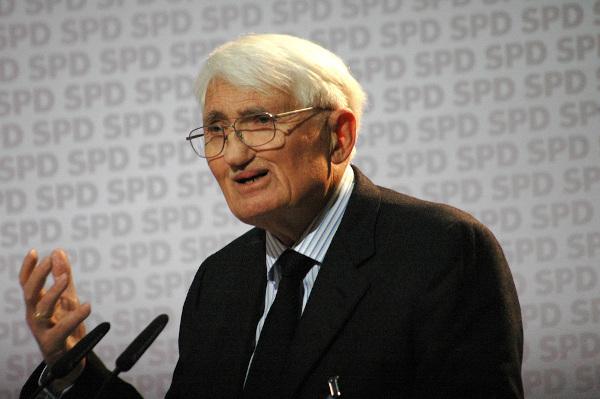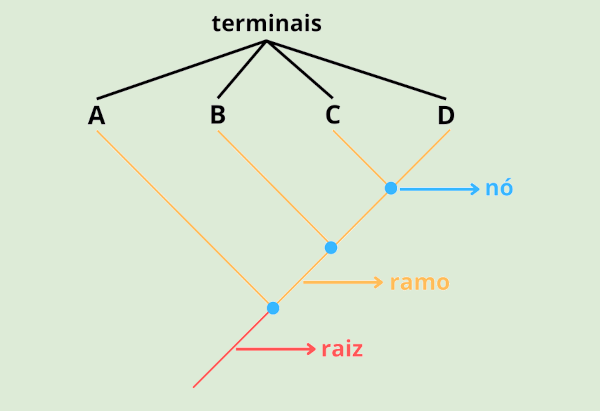A cancel culture it is the practice of organizing a virtual boycott of people perceived as deviant. It can lead the judged person to social oblivion. This culture has spread through social networks, and its dynamics cause significant impacts.
From the rise of social media to political polarization, the causes and consequences of cancel culture are complex, revealing a worrying scenario of virtual lynchings, injustices and irreversible damage to those who are the target of this phenomenon.
Cancel culture has significant consequences for society. By prioritizing punishment and exclusion over dialogue and constructive conflict resolution, cancellation undermines the diversity of ideas, discourages the active participation of citizens and compromises the search for mutual understanding and consensus democratic.
Read too: Human rights — category of basic rights guaranteed to all human beings
Topics of this article
- 1 - Summary about the cancel culture
- 2 - What is cancel culture?
- 3 - Causes of cancel culture
- 4 - Cancellation culture on social networks
- 5 - Consequences of the cancel culture
Summary on cancel culture
Cancel culture is the practice of making moral judgments with the aim of isolating someone from the virtual world.
The widespread advent of social media has made it possible for hate campaigns to spread across the globe in a matter of minutes.
Society's awareness and engagement has increased regarding individual rights, and this also favors cancel culture.
Other factors causing the culture of cancellation are the fragmentation of society into closed identity groups and political polarization.
Although cancellation seeks to hold people accountable for their actions, its effects are more negative than one might think.
Cancel culture seeks a form of justice, but ends up deteriorating the public sphere where justice is constructed.
What is cancel culture?
Cancellation culture is practice of organizing a widespread boycott against a person, usually a public figure, for offensive, unwarranted, or morally objectionable behavior or statements.

The cancellation occurs through intense campaigns on social networks, may take the form of a virtual lynching. The target of unsubscribers can be driven into public scorn and loss of work, followers, and sponsorships. The virtual ostracism sought by cancellation can also be directed against companies, films and even books.
Do not stop now... There's more after the publicity ;)
Causes of cancel culture
One of the causes of cancel culture is related to the advent of the internet and social media. The interaction and posting of content on digital platforms gave public opinion a new space for expression and engagement. Some argue that this has made it easier to respond to decades of oppression, social injustice and a desire for real change. So, the democratization of social networks has given voice to groups that were previously marginalized and can now defend their rights.
A growing awareness of issues of social justice and individual rights is another factor that causes cancel culture. Movements such as feminist, anti-racist and LGBTQIA+ activism have played a key role in promoting equality and denouncing abuse and discrimination. The engagement of these groups to conceptualize what is considered “politically correct” favored the imposition of new rules to mediate the debate on individual identities.
However, this awareness can also lead to an environment that is hypersensitive to any perceived deviation from socially accepted norms. Engaging opt-out groups can amplify wrongdoing and disproportionately punish deviants, spreading hate, bigotry, and a culture of virtual lynchings.
Finally, cancel culture is caused by political polarization and the consequent strengthening of the identity of closed groups in society. Loyalty to the group and upholding its beliefs become priorities. This leads to greater intolerance of dissenting opinions and a greater willingness to cancel those deemed enemies of the group. Therefore, the fragmentation of society into ideological sects strengthens the cancel culture.
Read too: Religious intolerance — the form of prejudice on account of religion
Cancel culture on social media
The increased use of social media plays a key role in amplifying the cancel culture. With the speed and scope of online information, it is possible to create waves of indignation in a matter of minutes. The book “Humiliated, How the Internet Age Changed Public Judgment”, written by English journalist Jon Ronson, investigates these virtual movements in which users of a social network gain a voice and feel like vigilantes.
The book features a series of accounts of individuals who were publicly humiliated and canceled due to mistakes, controversial statements or inappropriate behavior. One of those interviewed was journalist Jonah Lehrer, who had his professional reputation ruined when a reporter uncovered distortions of facts about Bob Dylan in his book “Imagine, How Creativity works”.
By trying to apologize publicly at an event, Lehrer ended up further increasing the anger of internet users who followed him on Twitter. After selling more than 200,000 copies, the publisher ended the edition of the paper books and withdrew its digital version from the market. The writer even had to announce his own resignation from the traditional magazine “The New Yorker”.
Another interviewee by Ronson was the American Justine Sacco. She saw her life turned upside down when, on her way to South Africa, she posted a joke about the AIDS epidemic on the African continent (“Going to Africa. I hope I don't get AIDS. Just kidding, I'm white!"). Angry people were waiting for her at the Cape Town airport. It was just the beginning of a difficult journey. Sacco was fired and fell into depression.

Anyway, one of the main arguments of Jon Ronson's book is that the anonymity provided by the internet amplifies hatred and intolerance, generating a toxic climate that encourages a culture of cancellation. In this way, people who make mistakes are eliminated from the debate, and, therefore, society does not see the evolution of that person after the event.
Check out our podcast: Internet, social networks and contemporary conflicts
Consequences of cancel culture
While cancel culture can be seen as a form of accountability, it also has troubling consequences. the public cancellation can cause profound psychological harm, social isolation, and mental health effects of the people involved.
In addition, there are cases where cancellation is based on unfounded or misinterpreted emotions, which can lead to injustice and the destruction of baseless reputations. It is crucial to critically assess the effects of this culture on the social fabric and, more specifically, on what the philosopher Jurgen Habermas called the public sphere.
Contemporary German philosopher, theorist from the Frankfurt School, conceptualized the public sphere as a space for rational and public debate, where individuals can freely discuss issues of common interest, formulate informed opinions and influence decisions policies.

This concept implies the need for an open, inclusive exchange of ideas based on logical reasoning. However, cancel culture, with its ostracism tactics and public contempt, attacks the fundamental principles of the Habermasian public sphere.
Rather than seeking constructive conflict resolution and increased mutual understanding, the culture of Cancellation prioritizes punishment and exclusion of those found guilty of wrongdoing or opinions undesirable.
In this way, the cancellation deteriorates open debate and undermines consensus building and mutual understandings, rather than contributing to dialogic reason, communicative and effective action.
Another consequence of cancel culture is the widespread self-censorship. Afraid of being the target of cyber attacks, many people choose not to voice their opinions or debate controversial gifts. This creates an environment of silencing and can harm the diversity of ideas that circulate in society.
Finally, we have defended the right to a fair trial for a long time, which is nothing more than the right to contradict, to counter-argue denouncements or accusations. Therefore, eliminating from discussions the person who commits errors or moral deviations is perhaps as immoral an action as the one practiced by the person you want to cancel.
image credits
[1] 360b / Shutterstock
Sources
BECKER, Howard Saul. Outsiders: study of sociology of deviance. Rio de Janeiro: Zahar, 2008.MILL, John Stuart. About Freedom. Petropolis: Voices, 1991.
HABERMAS, Jürgen. Theory of communicative action: Rationality of action and social rationalization | For the critique of functionalist reason. São Paulo: Editora Unesp, 2022.
POPPER, Karl. The open society and its enemies. Lisbon: Editora 70, 2012.
RONSON, Jon. Humbled: How the Internet Age Has Changed Public Judgment. Rio de Janeiro: Best Seller, 2018.
By Rafael Pereira da Silva Mendes
Professor of Sociology
Click here and learn more about Human Rights. Understand how they came about and what their importance is. Check out the 30 articles of the Universal Declaration of Human Rights.
Click here to learn about the biography and theories of one of today's leading thinkers, the German philosopher and sociologist Jürgen Habermas.
Click here and find out what freedom of expression is. Understand what your limits are and know your history.
Click here to learn about the types of violence. Understand the concept of violence. See what are the most common types of violence in Brazil.



